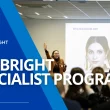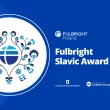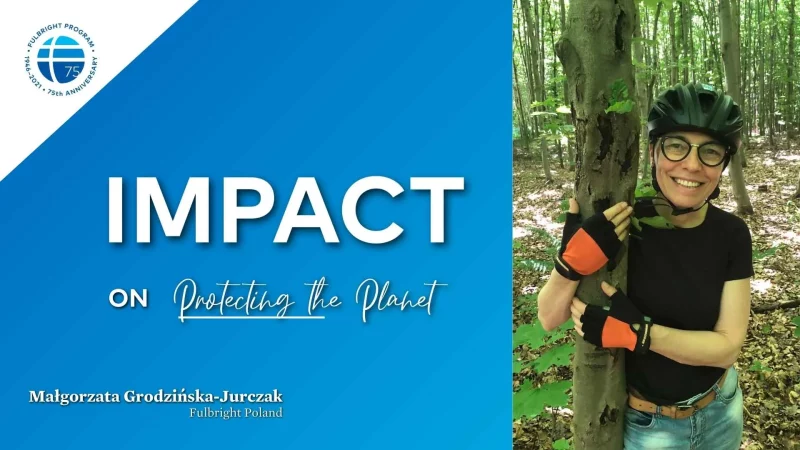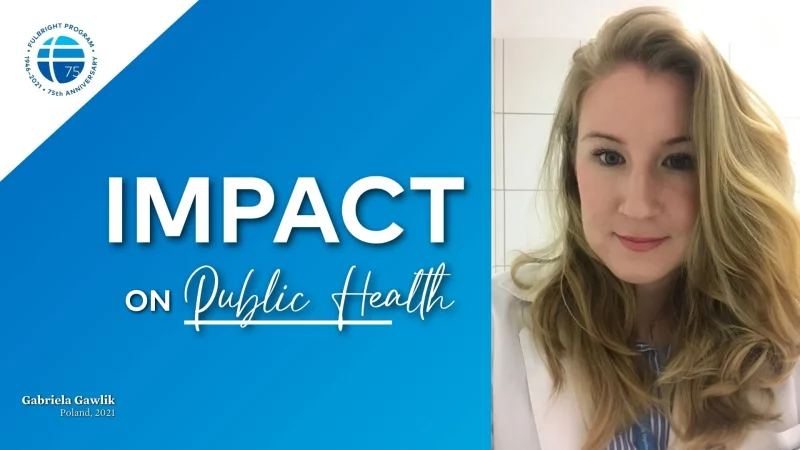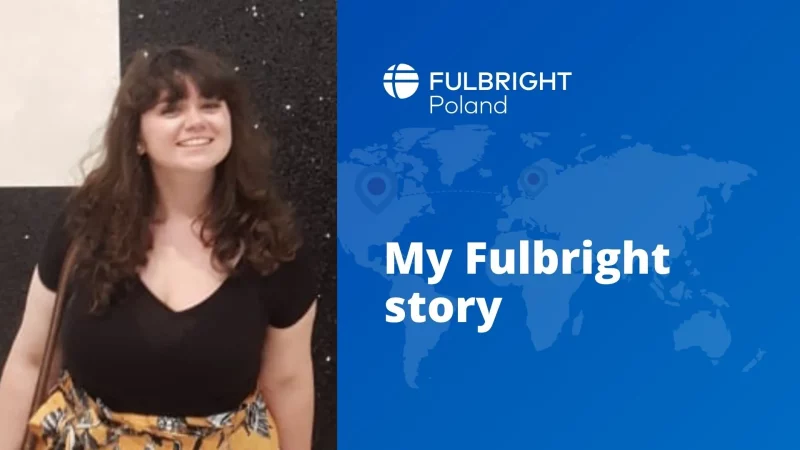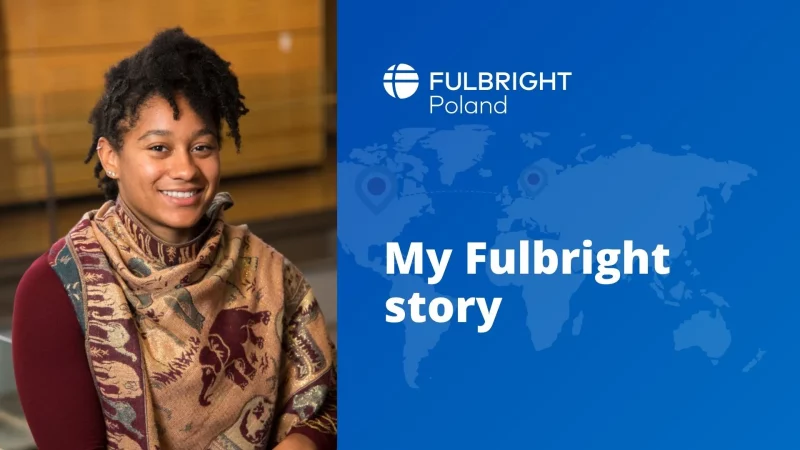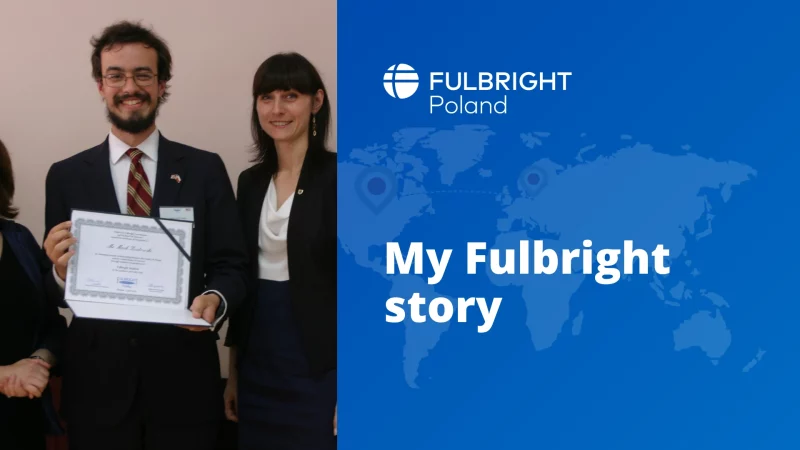Prof. Małgorzata Grodzińska-Jurczak is a biologist and a free spirit working also outside of academia, mostly for social change. Her interests center around human beings and their impact on nature and the environment – a topic she explores from different angles focusing on various dimensions of their actions.
Her research experience and expertise revolve around three thematic trends: classical ecology; issues of limiting the negative impact of municipal waste on the environment; and human dimension of natural resources. She received the title of Professor of Biology in 2014. Since 1994, she has been continuously associated with the Institute of Environmental Sciences at the Jagiellonian University where she currently manages the Nature Protection, Wildlife Management and Environmental Education Research Team.
Prof. Grodzińska-Jurczak’s decision to center her research around the human dimension of environmental protection was based on her interest in the human’s role in the environment: on the one hand, the human’s right to use nature and decide upon the surrounding environment; while on the other hand, the obligation to protect nature and manage it responsibly. This type of approach shifts the focus away from mere biology and allows one to look at the human as a more active individual – not just the one who harms the environment. A direct reason to engage in this field was Prof. Grodzińska-Jurczak’s involvement in implementing Nature 2000 program and her collaboration with the Regional Directorate of Environmental Protection, which included consultations with people from the region.
In her many years of work, prof. Grodzińska-Jurczak observed many social, economic and political changes affecting her area of research. She distinguishes two milestones that have impacted the field: participatory actions (the legally required necessity to consult investors’ plans with all interested entities – not only central decision-makers, but also local organizations, residents) and interdisciplinarity of research projects. Today, much more than a dozen or so years ago, a biologist, geographer, sociologist or tourism specialist will sit at one table to create a plan of action in the field of environmental protection.
Thanks to her openness to a different point of view, prof. Grodzińska-Jurczak also easily fits within multidisciplinary constoria. The experience of working with participatory processes convinced her, in turn, that a scientist has a duty to also be a popularizer. While scientific work will only reach so many (it will remain mainly in the academic world), popularization activities translate scientific knowledge into information available to the general public – which in cases such as the designation and management of the Nature 2000 site allows for a greater understanding and sustainability of the process.
The openness of academia to collaboration with the outside world was one of the things that made a profound impression on her during her 2008 Fulbright grant at Fort Collins. Even then, it was obvious that the university cooperates with other institutions, which actually strive to be able to cooperate with scientists. She says that you could feel more trust in scientists. During her grant titled “Application of the Human Dimension Approach to Natural Resource Management in Poland” at the Colorado State University, she has received a warm welcome and has been immediately invited to engage in university work.
A belief that working “outside” – collaborating with communities surrounding the university – is important, prof. Grodzińska-Jurczak implements in Poland, among others in her environmental education projects. She considers a series of projects in Jasło, carried out jointly with students and employees of the Nature Conservation and Environmental Education Team from the Jagiellonian University, Jasło City Hall and local high school students to be particularly successful. At the time when Jasło started to implement the waste segregation system, the team she was leading prepared educational activities – workshops for high-school youth. Prof. Grodzińska-Jurczak, as one of the so-called “home advisers” also visited the residents of Jasło, explaining to them the principles of selective waste collection. The simultaneous appearance of separate recycling bins and the possibility to monitor the amount of separately produced and collected waste made it possible to notice the impact of these actions: working directly with residents translated positively into the results of segregation. The amount of segregated waste increased in the month when consultants were visiting the residents, and it remained at the same level the following month. Then, it decreased until the next consultants’ visit, to eventually reach a steady level after two or three such visits by the youth. This is why this campaign has been repeated several times: to reinforce the change in behavior among the residents.
The civic campaign “No! to plastic,” initiated by prof. Grodzińska-Jurczak in 2019, was similarly successful. This campaign, from the incentive to reduce the consumption of disposable plastic in everyday life (i.e. in the university canteen or coffee shop by bringing your own cup), turned into a study of the level of plastic consumption at Krakow universities’ canteens/bars. And in turn, the campaign allowed to determine which places generate the highest level of plastic waste and ended with inviting various stakeholders – producers, restaurateurs, recyclers and officials – for a discussion. The meetings resulted in a joint commitment to reduce plastic use.
Can an individual therefore have an impact on protecting the environment? Yes, but ecology is also a team game. On the one hand, we can educate the individual, but on the other, we need solutions on the national or even global level.
Learn more about Prof. Małgorzata Grodzińska-Jurczak: http://ee.uj.edu.pl/pl/pracownicy/prof-dr-hab-malgorzata-grodzinska-jurczak/o-mnie




